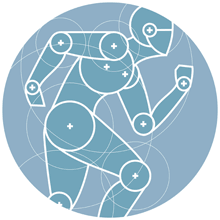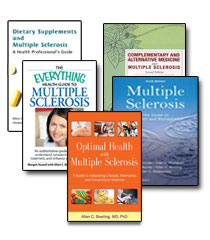Many have suggested that aspartame, an artificial sweetener often used in diet soft drinks, causes MS or exacerbates its symptoms.
Treatment Approach
It is sometimes stated that people with MS should avoid all food and drink products that contain aspartame. Furthermore, it is sometimes claimed that people with MS should use stevia, or sweetleaf, a non-sugar, herbal sweetener, as a sugar or aspartame substitute.
Evaluation in MS and Other Conditions
Aspartame has not been shown to cause MS or worsen symptoms in any well-conducted scientific studies. Some limited work has suggested that aspartame may increase depression and provoke migraines in some people. Rizatriptan (Maxalt-MLT), a migraine medication that contains aspartame, may worsen headaches in those whose migraines are aspartame-provoked.
Aspartame is a theoretical concern because biochemical processes in the body may convert it to methanol and then to formic acid. This compound may produce serious toxicity. Despite this, it has been shown that even consuming large quantities of soft drinks containing aspartame does not cause significantly increased levels of methanol or formic acid in the blood.
Adverse Effects
Safety information on stevia is limited, but some data suggest it may cause abdominal fullness, decreased blood glucose levels, decreased blood pressure, and nausea. Headaches, muscle pain, numbness, and dizziness may also occur. People allergic to plants in the Asteraceae/Compositae family (chrysanthemums, marigold, daisies, and ragweed) may suffer allergic reactions to stevia. Long-term safety information about stevia is not available, and thus the Food and Drug Administration (FDA) currently lists it as an “unsafe food additive.” However, stevia is still imported legally as a dietary supplement.
Summary
Due to the lack of compelling data, there is no reason at this time to specifically recommend that people with MS avoid aspartame. A reasonable aspartame intake has not been shown to worsen MS or its associated symptoms. A small subgroup of people may experience aspartame-related symptoms, such as headaches or depression. Discontinuing aspartame intake for a trial period may help people decide if they are part of this subgroup. If benefits are noted, then it may be wise to avoid aspartame use.
References and Additional Reading
Books
Bowling AC. Complementary and Alternative Medicine and Multiple Sclerosis. New York: Demos Medical Publishing, 2007, pp. 47-49.
Jellin JM, Batz F, Hitchens K. Natural Medicines Comprehensive Database. Stockton, CA: Therapeutic Research Faculty, 2005, pp. 1176–1178.
Journal Articles
Leon AS, Hunninghake DB, Bell C, et al. Safety of long-term doses of aspartame. Arch Int Med 1989;149:2318–2324.
Lipton RB, Newman LC, Cohen JS, et al. Aspartame as a dietary trigger of headache. Headache 1989;29:90–92.
Newman LC, Lipton RB. Maxalt MLT-down: an unusual presentation of migraine in patients with aspartame-triggered headaches. Headache 2001;41:899–901.
Van dewn Eeden SK, Koepsell TD, Longstreth WT Jr., et al. Aspartame ingestion and headaches: a randomized crossover trial. Neurology 1994;44:1787–1793.
Walton RG, Hudak R, Green-Waite RJ. Adverse reactions to aspartame: doubleblind challenge in patients from a vulnerable population. Biol Psych 1993;34:13–17.






